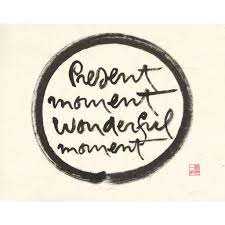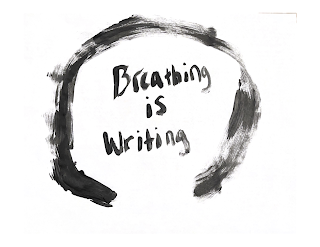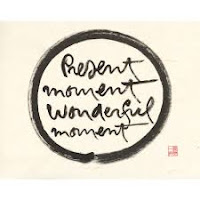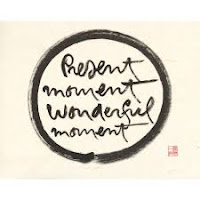Let go of your fears, everything fades with time
Izzy Welch
Izzy (Isabel) Welch is a Political Science major and an English minor at Salem State University. Her writing has been published in Soundings East and elsewhere.
Both as a writer and a person, the idea of leaving behind
a legacy is one that is burdensome but one that I have been pushed to embrace.
With expectations of remaining a continuous over-achiever and earning the title of
a gifted student, there is pressure to succeed in our performances. Although
many of us, including myself, have fallen victim to these expectations, it is harmful to
limit the work you produce to something that aims for perfection. Even still, the
creations that itch to come forth within you shouldn’t have
to be products meant for the rest of the world to see.
Simply put, you should
produce for the sake of your own happiness or other personal reasons.
Many of
us feel the limitations that are self-imposed from the judgments about our own
prose to the fears that others will mock our amateur writing skills. It’s
easier said than done, but we must ignore those crippling thoughts as they keep
us from actually growing as writers. Seriously, why should we waste our
precious, limited time on this earth letting the voices of critics fill our
heads and prevent us from exploring the wonderful medium of writing?
None of
this is permanent, from our works to our worries. Now, saying that everything
goes away with time isn’t to say that your efforts are pointless, that would be
equally harmful. With nihilistic beliefs like that comes the condemnation of
existence, and this mantra is meant to dissuade this line of thought, not
encourage it.
What is impermanence? How does impermanence manifest
itself in your life?
Impermanence refers to the state or fact of lasting for
only a limited period of time, but it goes much deeper than that simple
definition. It deals with everything changing. In order to approach impermanence
from a perspective of mindfulness, one must partake in non-judgmental
observation of the ever-changing present moment. In recognizing that change is
the only constant, one may
overcome their fears. The leaves that make inviting canopies, buried in the
trees, will undergo transfigurations in the transitionary seasons and turn into
fiery hues that slowly litter the ground.
Even that change is short-lived, the
insects and creatures that make their nests and take their nutrients from the
leaves will use them for their own renewal. Those insects may meet their fate
at the hands of such creatures they unwittingly run into, leaving behind their
present form. Those creatures may be scooped up by larger prey or they may
greet death through natural causes, fueling the earth with their organic
matter.
Many of us may mourn the inevitably of change and seek the autumn
colors once the snow begins to descend and coat the ground. However, we mustn’t
look back at what once was; instead, we must look at the ongoing changes around
us. Everything that comes from the earth is capable of producing something
meaningful and beautiful. Although that sentiment may sound daunting, it is a
much simpler concept to grasp than one may initially think.
Leftovers from last week's Taco Tuesday, the love letters
that were written to you by your first boyfriend who you can’t
quite remember the name of, an Irish wool sweater your mom gave you several
birthdays ago but became worn out with time, vegetables from the garden that
have been sitting in the fridge for far too long, that thesis you stayed up all
night to write (with bloodshot eyes, swollen from rubbing away the tears of
frustration) for your senior year capstone class, that free cotton t-shirt you
were given for running that 5k in college, an empty soda bottle you sipped on
eagerly during last Fourth of July as the fireworks ignited above you, that
pair of leather boots you bought yourself as a treat after you got your first
adult job whose soles are now irreparably battered, a lab report you wrote for
chemistry in tenth grade, your birth certificate, the first pair of clothes
your grandmother knit for you, orange peels from when you tried (and
subsequently failed) to try soccer out, the carton of spoiled milk you
accidentally used for today’s cereal, a crumbled up bus ticket tucked away at the bottom of your purse under the rest of its contents, you.
Nothing
stays the same, and nothing, including what was mentioned, is eternal--or else
not in the way that one may initially think.
Oftentimes, people worry about the
pages they fill with their words, but they don’t have to serve the sole purpose
of nourishing the mind (of course, they can if you want them to). Instead, you
can rip out any unwanted work from the notebook they’re bound in and use it as
fuel for a summer bonfire; you can watch the letters blow away with the embers
along with the unwanted sentiments your writing captured.
Even still, you can
mix it in with your compost blend that will nurture new life that manifests in
next spring’s garden.
Whatever you decide to do with your writing or with your
life, know that your contributions do have meaning, but the consequences won’t
be as permanent as one may fear. If your heart aches, urging you to write, it
is your duty to respect its wishes. Take whatever writing materials you have
handy: a pen, a pencil, a pile of sticky notes, a few spare sheets of paper,
and let your thoughts pour out heartily.
After you complete the writing
process, you have an abundance of options. You may try for publication, share
it in hushed whispers with your closest friends, keep it for your own enjoyment
and read it nightly by candlelight, crumble and discard it into the nearest
waste bin, email it to an old professor you see as a valued mentor…. The
possibilities are endless.
Your
words may flow effortlessly through your fingers and onto the spiral notebook
you use to capture your stories. Some days, you may find challenges in your
craft and may scribble out sections you’d rather not revisit. Other times, you
let your writing take numerous routes that leave plenty of room for
possibility. You may write tales of spellbound love or heroic tales of woe.
Such stories have the ability to remain private, and you may seal that notebook
away to discourage prying eyes. On the other hand, you may endeavor to take the
fearless leap to publish your work and face the lows of rejection or the
ecstasy of publication.
Either way, all work faces the same inescapable fate.
The works of wordsmiths like William Shakespeare and Sylvia Plath have
persisted for decades, but to say that they are eternal is misleading. Their
works, just like yours and mine will fade. Leather-bound novels, poems written
in messy, chicken-scratch scrawl tucked away on a piece of scrap paper, and
last-minute essays with their recognizable three-hole punch will wither away
with time. In time, these mediums will melt into the ground as they decompose.
Whether it’s something you’re proud of or an incoherent jumble of words, those
pages will litter the earth and eventually transform into something separately
wonderful from the piece you created, which should provide you with a sense of
peace.
The next time you anxiously bite your lips after you hand your professor
an essay you pulled an energy drink-fueled all-nighter to create, try to
consider the impermanence of it all. Writing doesn’t need to be anything
spectacular, it simply is, but I think there’s something spectacular about all
things having the same fate. Nothing remains the same, everything is
transforming all the time- whether we realize that or not.
Even as
I write now, I can feel the judgments and fears seeping into my head, but I let
them flow in and out like waves. What if I’m doing this assignment wrong? What
if my peers have written something completely unlike this? I’m sure other
students in the class have far more writing experience, will they judge me for
this piece when they read it, even before the final product? Can I even make
the word count on this assignment? I hope I can seamlessly blend in the course
material to this without it sounding clunky. Should I be more clear about what
pieces and materials I’m referencing so the professor knows I’m adhering to the
guidelines of this assignment? Is this piece going to become something worthy
of publication? Do I even want anyone else to read this piece aside from my
professor and peers? Do I even want my professor and peers to read this? I hope
this becomes something I can be proud of. The idea of writing an assignment like
this for a prestigious writer and accomplished professor is a daunting
prospect. Isn’t it presumptuous to say that my works will end up in the same
place as seemingly immortalized literary figures? I don’t know how to make this
piece more cohesive. I think I’m running out of brilliant ideas to include. Am
I being too repetitive or am I just being thorough? Are there too many
metaphors in this piece? Will the readers understand the connections that I’m
attempting to make? I wonder if some students in the class are totally
confident in their writing abilities. Is this project too unorganized? How do
people write things that flow so smoothly?
There
are countless questions I ask myself and thoughts that linger when I begin a
writing piece, including some of the ones I mentioned that are relevant to this
assignment, but I don’t try to restrict them because I know that these feelings
will pass.
So instead, I simply acknowledge them and let them go. I feel the
urge to write poetry about my surroundings, and lines for each stanza come to
me easily; and it reassures me knowing whatever I write- for this essay, the
poem, or any other future work I produce is impermanent. I can delete words,
sentences, even entire passages from this piece.
If I want to, after I turn this
paper in, I can let it drown in a sea of computer files on my desktop.
Both in
my creative writing pieces and academic ones, that seems to be a common
occurrence. I’m sure many other writers may relate- even you maybe! But
sometimes, pieces resurface when I browse my computer, and I can look at it
with a totally different lens. New ideas spring from my head, and I think of
new additions and changes I can make.
The
other week, I went to a local tea store, and I picked out an interesting
variety called blooming flower tea, but they’re also commonly known as a
flowering tea. I made some in preparation for writing this piece, and I noticed
that as the hot water warmed the mug, the flower began to open up for an
artificial blossoming, almost as if its dehydrated state was mercilessly
restricting it from entering its final form.
Once the tea was ready for
consumption, the bud, in its burgeoned state, was a lovely shade of fuchsia,
and some of the formerly dried petals drowned at the bottom of the mug.
Even when
I finished the tea, the flower still retained its beauty although its original
purpose had been fulfilled. I thought about impermanence and how life allows
for constant change since the present is ever-changing. With every sip, the tea
no longer was. Once its contents warmed me inside, the flower lay there, aching
to enter a new phase and seek out its new purpose.
Normally, I would have thrown it out, but I was moved by the idea of change from simmering on ideas
related to groundlessness and impermanence all evening. In my mind, the flower
had served a purpose when its intoxicating aroma diffused
into the steamy water in order to fuel my body, but it wasn’t done.
So, I
scooped it out from the mug, leaves and all, and brought it outside near the
marsh so it could decompose. Perhaps if the weather weren’t so cold, it would’ve
had the potential to grow into a new bloom. From this experience, I reaffirmed
the idea that there are so many unrealized possibilities that mindfulness
allows us to see--both in writing and in all other life undertakings.
Even
the most experienced writers, artists, poets, among other sorts of creators
face difficulties in actualizing their ideas. Oftentimes, I take my own
experiences and apply them to my writing as many authors do as well. I find
that I’m able to produce more authentic pieces when I draw from my own
struggles, mishaps, and adventures. This is most frequently the case in my
poetry.
Regularly when I attempt to produce works of my own, I think of a quote
from the book Jane Eyre by Charlotte Brontë, “I imagine things I am powerless to execute.”
In my own experience, I concoct brilliant ideas at random points in my life.
Almost like an epiphany, I’ll be standing at the stovetop- guarding my stovetop
and preventing my food from being overcooked or lying in bed half-awake when
the perfect idea strikes me. I’ll just down the idea quickly in my notebook or
act on the sudden urge to write, and I type out a few words, but I find myself
stumped. I can’t seem to do the idea justice.
Presumably, Brontë may have taken
this idea from her own life in relation to the novel’s protagonist who utters
these words of resignation. Despite this, Brontë went on to produce works that
have lasted centuries.
This is not to say every attempt one makes will be
successful, but the urge to devise works of your own is not inevitably
fruitless. No attempt is fruitless. Each endeavor bears a bounty of fruits fit
for something, even the so-called rotten ones. One would say that the act of
attempting is a success in and of itself. Although I may find challenges in
writing, you may always change your work as it’s a fluid medium.
First,
let’s set the scene: On April 21, 1816, Charlotte Brontë was born, and chance
led her to write her works that would influence countless generations. Notably,
the Brontës were set apart from everyone else, as the children were completely
isolated and had few social interactions with the outside world. The only known
connections they had as children were with their father’s parishioners.
However, all of the children, including Charlotte herself, were given free rein
of the moors that existed beyond their home in Haworth, located in the United
Kingdom.
Now, envision Charlotte, adorned in typical Victorian-era garb,
slumped over a desk, trying to place her thoughts on the parchment that sat in
front of her. Much like ourselves, she must have dealt with limitations in her
writing, albeit different ones.
What sort of pressures do you think she must
have wrestled with considering her unique circumstances?
What thoughts plagued
her and kept her from embracing her true potential?
Do you believe she was able
to overcome them by eventually getting published?
Do our life experiences form
preconceptions and fears that limit our ability to write?
If you answered ‘yes’
to the last question, do you believe this applied to Charlotte? What do you
think distinguishes success between writers?
Oftentimes, as writers
and human beings, we get caught up in the past. Addressing this on a more basic
level, we may think about past experiences in writing, and that keeps us from
writing mindfully. Ellen Langer’s “Creative Uncertainty” illustrates that
change is constant. Noting an example of a brook, she mentions that even if two
people decided to return to the “same” brook at a later point, it would be
impossible. One may retrace their steps to the same point, but the waters may
run more rapidly or the stream may be less steady.
With this lesson, I find
that we may use it to look inwardly as writers. Even if one has been published
previously, it doesn’t guarantee that in future publication endeavors;
likewise, if you had been denied, it doesn’t mean that your future prospects
are hopeless. We are changing as writers constantly! What you produced
yesterday is not exactly the same style, format, or content as what will result
from your hard work in the future. Even if your brook runs dry today, begging
to end its thirst, you need not worry. Some days may consist of seemingly
eternal emptiness, and just when you feel like you’ll never get your reprieve,
one day, the brook becomes satiated once again.
Sometimes, however, the water
only relieves you slightly, with little crumbs just barely getting you along.
If you aren’t feeling fulfilled with the current state of your writing brook,
you must remember the dynamic nature it carries. Although the steady and easy
times you have creating content may not be permanent, neither are the
challenges you face. It is simply a matter of accepting that the creative flow
is uncertain and may change at any moment.
In writing this piece
about my mantra, I have found uncertainty and change to be the only reliable
constant.
At the beginning of writing this assignment, I conjured up an
abundance of ideas (which came easily to me), and they translated onto the page
with ease. In fact, I found that I had a challenging time stopping myself from
writing, even when I had hit the necessary word counts. With these past
successes, I have felt ongoing pressures to have the same sort of rapid flow, but
I know that the time isn’t right for this.
For now, I have found success in
writing when the right ideas strike me and putting my work aside when I can
feel myself waning. I have to remind myself that I am not the same writer I was
yesterday- or even five minutes ago. There is always room for growth, and I
shouldn’t set impossible expectations for myself. It is so easy to get
overwhelmed with constant reminders of the success of others, but even the
greatest of writers endure the same challenges. Often in works of literature,
the struggles of the writers themselves are reflected between the pages of the
books we’re holding right now. Just know, you’re not alone in these
difficulties.
Buddhist monks who have
studied concepts relating to mindfulness and meditation have a deep
understanding of what causes suffering. Coincidentally, the roots of suffering
are deeply intertwined with factors that limit our true potential as writers.
Speaking from experience, I find that I’m limited by grasping at straws and fixating
on (what should be) irrelevant; but as humans, we crave security, and we hold
onto the false illusion that reality isn’t constantly changing in order to make
us feel safe.
Obviously, from everything that has been said before, embracing
groundlessness is a necessary step in achieving enlightenment in every sense of
the word. We must not hold onto anything, even if the ground underneath our
feet feels steady, we mustn’t rely on it. The security it gives us must be seen
as an illusion, at any moment, it could give way, revealing that it had always
been a trap door. Better yet, it became one when we weren’t paying attention to
the changes going on around us and within us.
Really, we shouldn’t be taking
anything on in blind faith or relying on our perceived realities. Acceptance is
crucial in unlocking untapped writing abilities as it allows us to embrace
uncertainty and ambiguity. Speaking from experience, being aware of constant
change is terrifying, but one may view it as an opportunity to grow.
My preferred method of
creative expression is poetry. In writing poetry, I find that I’m able to
express my thoughts and life experiences concisely. Usually, when I’m having a
challenging time getting over my preconceptions in writing, I’ll dump my
current ideas onto a page and watch it slowly morph into numerous lines and
stanzas. I also find it comforting knowing that I can conceal some of my
deeper, more personal thoughts within the metaphors interlaced between the
lines.
With every poem I create, I notice that while the messages may be
similar, everything else may vary. Even in trying to recreate lost work, I’ve
never been able to get back the exact same poem, but I found that’s worked in my favor. I am able to
recall the parts that I liked, as they stuck in my memory, while my least
favorite sections remain lost.
With every creation of mine, I find new examples
of alliteration to incorporate, or new metaphors that take the theme a step
farther, or the shape and sizes of the poem completely change into something unrecognizable
from my past work. I recognize that I may not be satisfied with everything I
produce, but that’s okay.
Even though I can find it frustrating, spending time
agonizing over a piece, just to find it inadequate, just being able to lay my
fears aside and write will help me become a better writer.
To whoever reads
this: take these metaphors, my internal dialogue, the work of mindful
individuals, amongst the other information in this piece as a lesson to follow--both in your writing and personal life.
It is important not to strive for
perfection as impermanence will allow for all things to transform and
eventually become something wonderful. Next time you encounter such fears,
breathe in and out and repeat to yourself: Let go of your fears,
everything fades with time.
*Enso created by Izzy Welch




